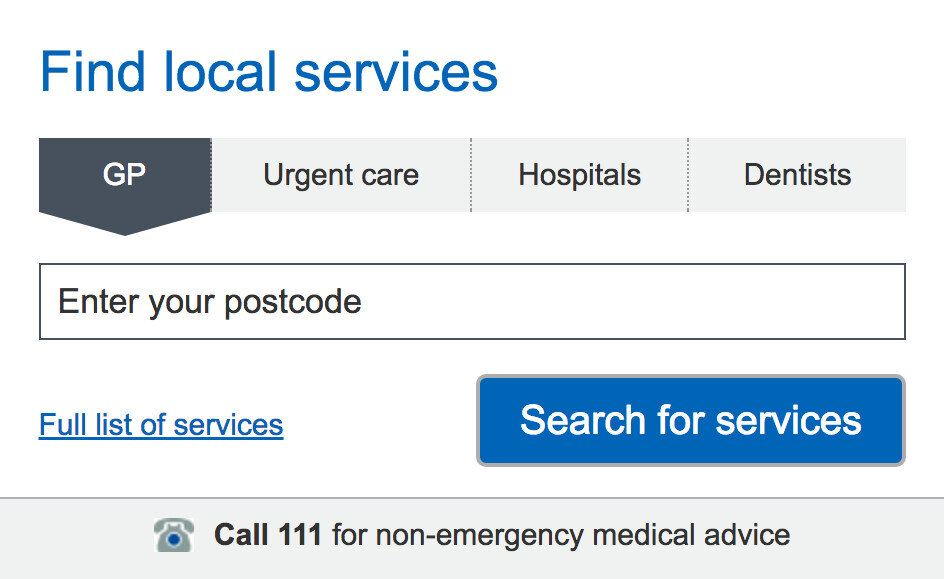
The Health Care System You Could Have
Imagine a world where you can just show up, get treated, and leave…
I wonder how many hours Americans spend annually fretting about their health insurance and trying to figure out how their plans work. I bought a plan on the ObamaCare exchanges for the first time this year, and I sat scrutinizing the list of options with no idea what to choose. Do I want a Bronze, Silver, Gold, or Platinum? Do I want an HMO, PPO, POS (hah), or EPO? If I want the bronze plan, do I want the Bronze plan with the higher deductible, lower premium, higher out-of-pocket maximum, and percentage-based copay, or the Bronze plan with the lower deductible, higher premium, lower out-of-pocket maximum, and flat-rate copay? I have no idea, since pretty much all of them will suck a good chunk of my meager income and as a person without any serious health problems I have no idea what health services I might need over the next year. Oh, and, of course, which providers are in which networks? (And I am lucky. I have options! Since everything varies wildly not just by state but by county, lots of people are stuck with whatever provider happens to be the one sticking it out in the marketplace.) So you might spend plenty of time trying to get health insurance in the first place. If you need insurance through the exchanges and miss the Enrollment Period, you have to see if you qualify for a Special Enrollment Period, which lasts 60 days from the Event precipitating your Special Enrollment Period. Then if your premiums suddenly double for seemingly no reason one year, you’ll spend more time trying to change plans.
But perhaps you’re in the lucky majority who are insured through their employer. Then, presuming you don’t lose your job, all you’ll have to worry about is the bureaucratic nightmare of actually getting your insurer to pay for things, and you’ll face situations like: going to a hospital that is in network but being treated by doctors who—unbeknownst to you—are out of the network, and being lumbered with some exorbitant bill that your insurer refuses to cover. A benevolent Reddit user explains that because this can easily happen during any hospital stay, anyone who goes into an American hospital should be fully prepared to do the following:
- Have someone (e.g. SO) create a daily journal log book of all the doctors, physical therapists, and procedures (e.g. Xray, MRI, blood tests) that are done every day.
- Get a 2-3″ 3 ring binder and sort and file every piece of paperwork you are getting from the hospital. Make sure that you request copies of everything you can. If there are tests or Xrays done, make sure to request hard copies of the reports…
- After a few months, you will start getting bills from the hospital and doctors and Explanations of Benefits (EOBs) from your insurance. These need to be organized together and you need to double check every line item to make sure things match up with your log book and that you weren’t billed twice or billed for something that didn’t happen.
- If there are discrepancies for double bill or incorrect bill, you need to take it up with the hospital and insurance. You WILL be on the phone with billing departments and/or insurance every single day.
- Some EOBs will come back and say that certain things were out of network. You will need to fill out forms and argue with insurance why these need to be treated as in-network…
- Every single time you call a billing department or insurance, you will have to repeat your story again… This, along with recovering from your injury, will be a near full-time job.
Again, the number of hours spent annually negotiating with insurance companies, or scrutinizing paperwork, or trying to figure out what’s covered, etc. is staggering to think about.
Now let me ask you to do something: go to the website of the British National Health Service (NHS). Poke around it for a while. See how it works. Here is what you do if you are a British person who would like to see a doctor. You go to the NHS website, go to “Find Local Services,” click on what you’re looking for and enter your postcode. Then browse through the various facilities, choose one nearby, call them, and book an appointment. Go to your appointment. See the doctor. Leave the appointment.

That’s it. You will search the NHS website in vain for anything like this:

There is no “I missed the time of the year where you’re allowed to get health insurance, do I get one of the special exceptions or programs?” There is just: here is a doctor.
Oddly, even healthcare reformers talk a lot about healthcare costs but not very much about healthcare simplification. American healthcare is not just more expensive than that of any other comparable country, but it’s complicated and frustrating. Every state is different, every insurer is different, every doctor is different, there are mountains of paperwork, endless lines of small print. It’s important to make sure that healthcare is not just cheaper, but that it consumes less of a portion of the mental energy that people should be able to put toward taking care of their actual health.
This is a major criticism I have of American liberalism. I try to avoid using the term “policy wonk” as a pejorative, because I like people who are smart and understand how policies work. But I do think there is a certain strain of liberal thinking that almost relishes complications. We’ll have a special subsidy for this, a tax credit for that, an exemption for X. But there needs to be more consideration to how government looks through the eyes of the people who have to interact with it every day. Every additional form someone has to fill out is time that is being taken from them. A core left principle, then: benefits should not just be generous, but should be really easy to understand, apply for, and receive.
The United States is more bureaucratic than you might expect from a nation that hates bureaucrats. We don’t just enroll voters automatically, you have to undergo a registration process. The DMV requires a dozen kinds of identification before they’ll grant you a license, and don’t you dare bring the wrong kind of utility bill. (I once spent three hours at the Boston DMV waiting in line, only to be told that my proof-of-address was inadequate: I had brought a letter sent to me from my bank, whereas only a bank statement would qualify. And I have been feeling particularly anti-bureaucracy lately, since I have spent the last months trying to work my way through the Postal Service’s elaborate requirements for how to send a magazine through the mail, as laid out in this 96-page guide. I got so frustrated with this that I actually hired someone to try to interpret the guide and fill out the paperwork for me. After two days of trying to figure it out he gave up and resigned from the job.)
My hypothesis here is that because American conservatives are so anti-government, American liberals are put in the position of defending government, often to the point of defending the bad parts. So when Republicans attack ObamaCare, Democrats insist that ObamaCare is great and point to all the new people insured. I think a better approach is the one Bernie Sanders took in his health care debate with Ted Cruz: when a Republican tells you ObamaCare is terrible, defend the good parts but don’t deny the bad parts. And when Republicans say they want to cut taxes, simplify the tax code, and allow people to file their taxes on a postcard, we should embrace the postcard idea even as we reject the rest.
The “left critique of bureaucracy” is extremely important in building popular support. Conservatives are right that nobody wants a healthcare system that operates like the DMV. And yes, to the extent that the NHS sometimes operates like the DMV, it, too, needs improvement. But the “Pick A Doctor and Make An Appointment” experience is still vastly superior to the “Spend Hours Upon Hours On The Phone With Your Insurance Provider” experience. One key advantage of single-payer, and what should be stressed over and over, is that if managed well, it will not just reduce people’s healthcare costs, but it will make their lives fundamentally easier. They will fill out fewer application forms, they will spend less time scrutinizing EOBs, changing schools or employers, or moving from state to state, will not come with health insurance-related complications. The system we should have is the one that nobody has to spend their time thinking about.




